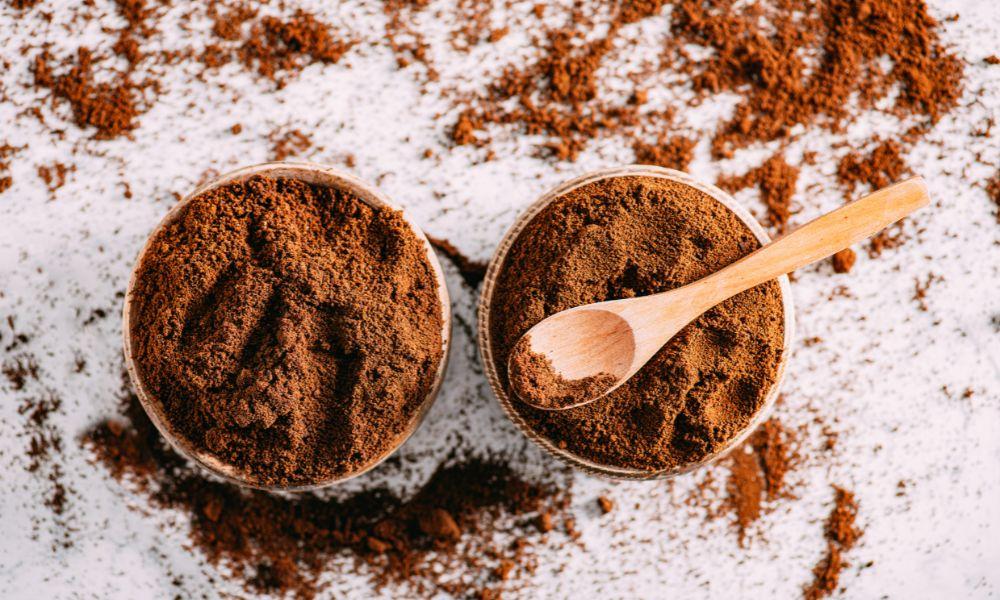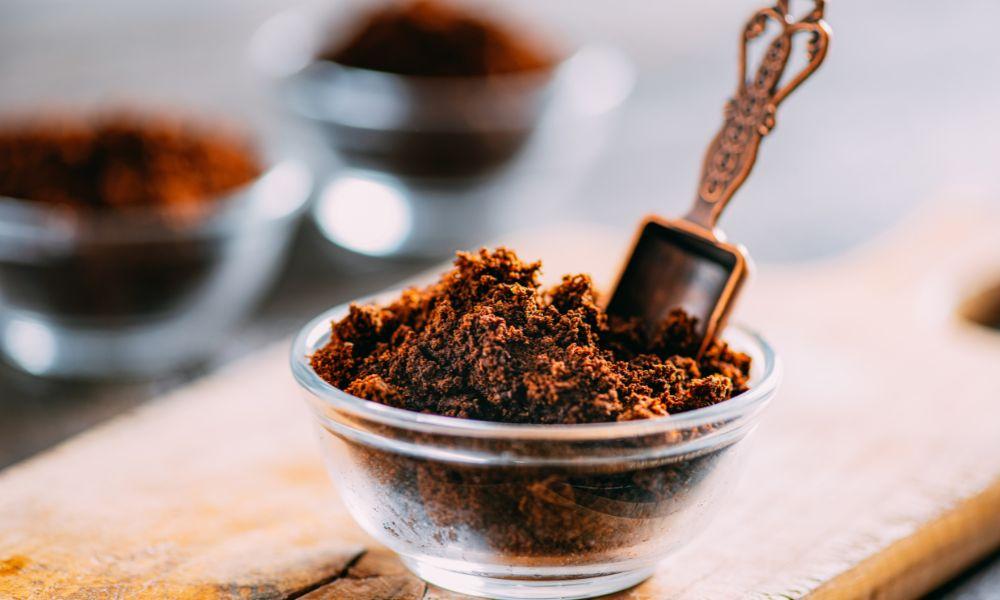Coffee grounds freshness is an essential part of delivering that perfect cup of coffee every time. While working at Starbucks, I learned quickly that storing coffee grounds correctly plays a significant role in maintaining the much desired flavor and aroma. However, opinions on the best storage methods vary — with some people swearing by refrigeration, and others preferring room temperature. This left me wondering: Should you refrigerate coffee grounds?
In search of an answer, I decided to experiment and dive deep into the world of coffee grounds storage. Throughout this article, I will share my findings and experiences to help you determine the best way to keep your coffee grounds fresh and flavorful. We’ll explore the impact of refrigeration on coffee grounds, the factors affecting coffee ground storage, and alternatives to refrigeration.

The Impact of Refrigeration on Coffee Grounds
There are a few reasons why people consider refrigerating coffee grounds. The logic is that lower temperatures slow down chemical reactions, which in turn preserves the freshness of coffee grounds. The idea is that refrigeration extends the shelf life of your coffee grounds, making it a seemingly viable option for longer storage times.
However, refrigeration also presents certain drawbacks and risks to the flavor, freshness, and quality of your coffee grounds. As we continue, we will explore these potential pitfalls and find out when, if ever, refrigeration may be the best option for storing coffee grounds.
Factors Affecting Coffee Ground Storage
When considering coffee ground storage for maximum freshness, it is essential to understand the key factors that influence the freshness and quality of coffee grounds. Temperature, humidity, light, and exposure to air all have an impact on preserving your grounds – let’s take a closer look at each of these factors.
🌡️Temperature
Low temperatures can slow down the compounds responsible for coffee ground quality. With this in mind, it is clear that an ideal storage environment requires a cool, stable temperature. However, the question still remains – does refrigeration offer the best solution for temperature control?
💧Humidity
Moisture is one of the most significant enemies of preserving coffee grounds. High levels of moisture can cause coffee grounds to become moldy or stale, ruining their flavor and potentially even rendering them unsafe for consumption. Given that refrigerators tend to have a higher humidity level, this raises concerns about using this method of storage for your coffee grounds.
💡Light
Like temperature, light can have an impact on preserving coffee ground flavor. Excessive exposure to light, particularly direct sunlight, can cause the browning reaction in coffee grounds and lead to a loss of flavor. For this reason alone, it may seem that keeping coffee grounds in a dark refrigerator could have its benefits.
💨Exposure to Air
Oxygen can degrade the quality of your coffee grounds over time, so limiting air exposure is critical for maintaining freshness. When considering whether or not to refrigerate, it is important to remember that opening and closing the refrigerator door frequently can allow air to get in and out of the coffee storage container.
Pros and Cons of Refrigerating Coffee Grounds

Armed with a better understanding of the factors affecting coffee ground storage, let’s dive into a balanced view of the advantages and disadvantages of refrigerating coffee grounds.
👍Pros
- Slower degradation of grounds: Lower temperatures do slow down many of the chemical reactions responsible for the freshness of coffee grounds. This means that refrigeration could potentially slow the aging process of your coffee.
- Protection from light: As mentioned earlier, light can have a detrimental effect on the quality of coffee grounds. So, one benefit of fridge storage is that it shields your grounds from light.
🙁Cons
- Moisture absorption: Refrigerators tend to have higher humidity levels, which can cause coffee to absorb moisture and become stale or moldy. Using a high-quality airtight container is vital for moisture control.
- Flavor degradation and odor absorption: Coffee grounds can absorb flavors and odors from nearby foods in the refrigerator, which may alter the taste of your final brewed coffee.
- Air exposure: Opening and closing the refrigerator door exposes your grounds to air, making it harder to achieve aroma retention. Furthermore, taking coffee grounds out of the refrigerator can cause condensation, leading to moisture buildup.
Best Practices for Coffee Ground Storage

Irrespective of the storage method you choose, implementing these best practices will help you preserve the longevity and flavor of your coffee grounds:
- Airtight containers: Regardless of whether you store your coffee grounds in the fridge, cupboard, or a specialized coffee storage accessory, using an airtight container is essential. This practice helps ensure that your grounds are protected from harmful factors like oxygen, light, and moisture.
- Cool, dry place: Look for a storage area that offers a consistently cool temperature and minimal humidity.
- Avoid light exposure: Keep your coffee away from direct sunlight or other light sources that can degrade its quality over time.
By following these simple tips, you can enjoy a fresh cup of coffee with confidence, knowing that you’ve taken the right steps to preserve the flavor and aroma for as long as possible.
Now that we’ve explored the pros and cons of refrigerating coffee grounds, as well as different storage methods and tips for keeping your coffee fresh, it’s time to address some common questions and misconceptions related to storing coffee grounds. We’ll start by tackling the question of whether refrigeration can extend the shelf life of your coffee grounds. To find out the answer, continue reading here.
Another popular question is how much ground coffee should you use per cup? To get the answer to this question and learn more about brewing the perfect cup of coffee every time, check out our article here.
FAQs
Can refrigeration extend the shelf life of coffee grounds?
While refrigeration may slow down some chemical reactions that affect the freshness of coffee grounds, achieving long-term storage solutions for coffee grounds may not be worth the risk of moisture absorption, flavor degradation, and potential exposure to odors. Instead, a combination of airtight containers, cool and dry storage environments, and avoiding light exposure can help maintain coffee ground freshness better without the use of refrigeration.
Does refrigeration affect the flavor of coffee?
Yes, refrigeration can have a negative impact on the flavor of your coffee grounds. As discussed earlier, grounds can absorb flavors and odors from other foods in the refrigerator. Moreover, the high humidity levels inside a refrigerator can alter the taste and aroma of your coffee grounds due to moisture absorption. It’s far better to invest in proper coffee ground preservation methods that protect against moisture, light, and air exposure.
How long can coffee grounds stay fresh at room temperature?
The duration for which coffee grounds stay fresh at room temperature can vary depending on factors such as the roast date, quality of the grounds, and storage conditions. However, as a general guideline, properly stored coffee grounds can remain fresh for 2-4 weeks at room temperature. Ensuring that your grounds are stored in an airtight container away from light, heat, and moisture can also help extend their freshness.
Conclusion
So, should you refrigerate coffee grounds? Based on my experience and the experiments I’ve conducted, I would recommend against refrigerating coffee grounds. Instead, focus on properly storing coffee grounds at room temperature in airtight containers, away from light, heat, and moisture. This will help preserve the flavor, aroma, and freshness of your grounds more effectively than refrigeration.
Of course, everyone’s tastes and preferences are different. If you believe refrigeration works well for you, feel empowered to continue using that method. At the end of the day, the goal is always to achieve the best possible brewing experience. So, whether it’s through alternative storage methods, meticulous preservation, or even trying new techniques, continue experimenting and exploring to discover the perfect storage solution for your favorite coffee grounds.